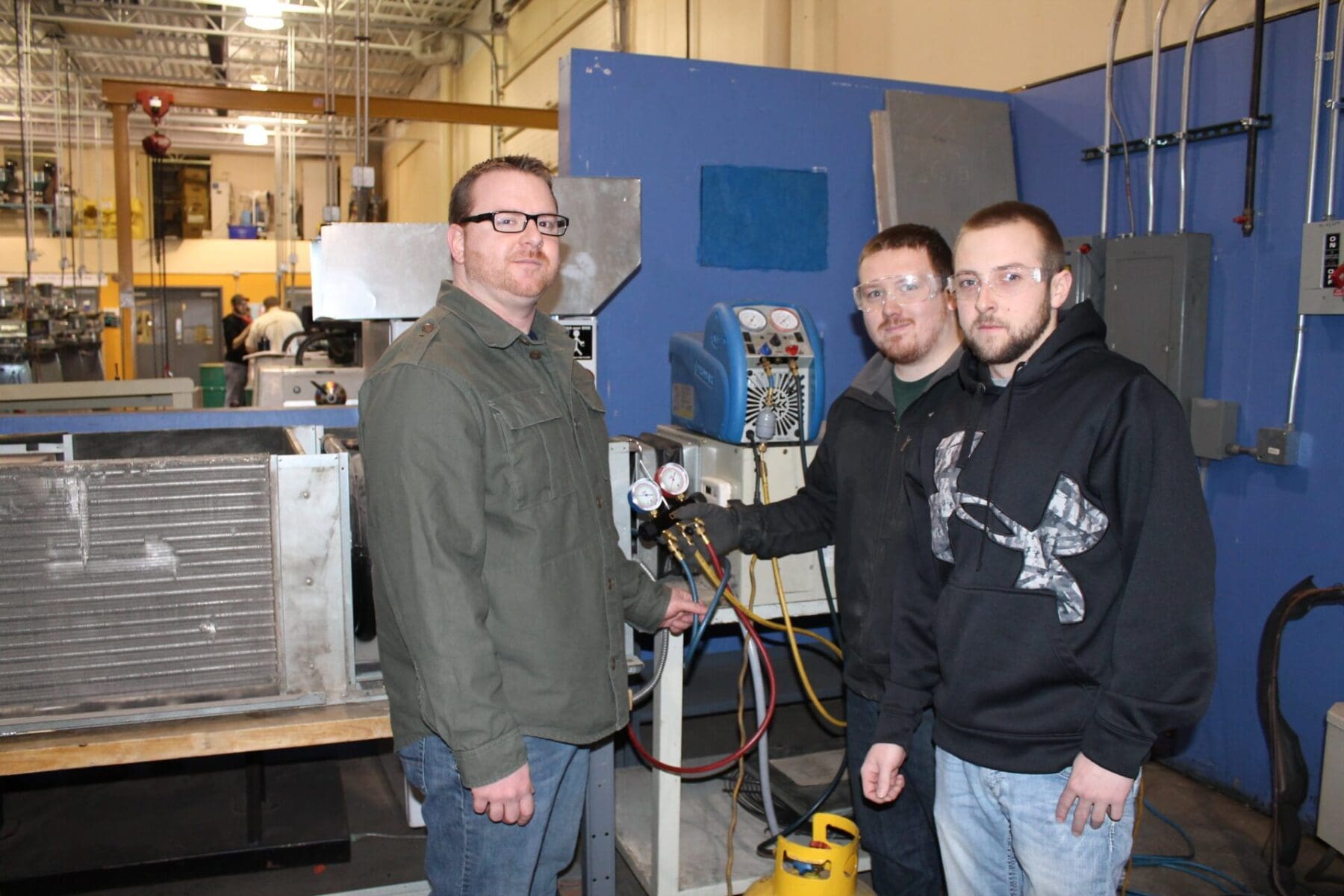In frigid winter temperatures, your heating system often has to work harder to warm your home, and you’re likely to use it more frequently. For these reasons, preventative maintenance and regular inspections are essential in keeping your HVAC system running smoothly and keeping you comfortable in your home.
Read on to learn how to prepare your HVAC system for winter and when you should contact a professional HVAC technician.
Why Is Preventative Maintenance Important?
Making sure your HVAC system is in good working order not only keeps you comfortable, it can also reduce the need for costly repairs and lower your energy bills, saving you money and conserving energy.
Preventative maintenance saves you from an expensive, unpleasant system breakdown, which is especially important during freezing winter temperatures.
How Do I Prepare My HVAC System for Winter?
There are some helpful steps you can take to get your heating system ready to keep you warm this winter, but before you do them, you should get your air conditioning unit ready for winter.
This means turning off your air conditioning system, clearing the unit of debris, insulating it, and covering it. To turn off your A/C unit, locate the electrical circuit and flip the switch. To protect it from freezing, install rubber or tubular foam insulation around pipes. A/C units can withstand snow, sleet, and rain, but it’s best to cover them to keep debris at bay. Manufacturers make covers that fit over the unit and leave about a foot of open space above the ground to allow air to pass in and out.
9 Top HVAC Preventative Maintenance Tips To Prepare for Winter
Here are some key ways to maintain your HVAC system and prep it for the winter season.
1. Unblock All Registers & Vents
Make sure all registers and vents in your home are clean and unobstructed. Furniture and rugs often cover or block these vents, which prevents air from circulating properly and makes it harder for your HVAC unit to warm your home.
Vacuuming your home, including your air vents, will help prevent blockages. If you notice a large amount of buildup on your vents, consider scheduling an air duct cleaning to improve indoor air quality.
You may think you should close vents in unused rooms, but this can throw off the balance of airflow, making your HVAC unit work harder. You should keep at least 80% of registers open at all times.
2. Replace Your Air Filter
If your air filters are reusable, you should make sure to keep them clean, and if they’re not, you should change them regularly.
A clogged air filter restricts airflow into the engine, which results in inadequate air supply. Since the engine has to work harder to supply the air, it uses more fuel.
Aside from wasting fuel and energy, a clogged air filter is also a health risk. It puts contaminants back into the air and prevents heated air from getting through.
The fastest way to check if an air filter needs to be replaced is by looking at it. A brand-new filter will be white or off-white, while a dirty one will be darker with dust and visible debris. You should check your air filters once a month and replace them if necessary.
3. Set Your Thermostat for Energy Savings
As you switch from cooling to heating mode, you can also set your thermostat to improve energy savings.
Here’s how to save money on heating this winter:
- When you’re at home, set the temperature to no higher than 70 degrees.
- When you’re not home or sleeping, set the temperature between 60 to 62 degrees. With a programmable thermostat, you can set it to change at bedtime and not have to worry about changing it every night.
- Avoid overriding your preprogrammed settings as much as you can. If you’re cold, put on another layer or cozy up under a blanket before you change the thermostat.
- If you must adjust the temperature, only change it by a degree or two. Turning it up very high won’t heat your home any faster, and it will waste energy once the temperature exceeds your comfort level.
Ignite Your Future: Build a Thriving Career in HVAC
Enroll in our HVAC program and become a high-demand technician, keeping homes and businesses comfortable year-round.
4. Seal the Ductwork
Leaky air ducts can waste large amounts of energy because they leak heated air into unconditioned spaces behind the walls and above the ceilings. Despite its name, you should never use duct tape to seal ductwork because it is not long-lasting. It’s a good idea to hire an HVAC technician for professional ductwork sealing.
5. Check for Any Strange Noises
A change in any sounds or smells coming from your HVAC system warrants an inspection. Loud signs are a sign that the system is working harder than it should.
It’s difficult for homeowners to tell what exactly is causing the noise. Typically, the furnace is dirty or needs repair. If you’ve changed the air filters and the noise is still happening, you should have your system looked at by an HVAC technician.
6. Test Your Thermostat & Heating Unit
Click through every function on your thermostat and wait to ensure the unit responds. Set the heat to a specific temperature to make sure it’s activating the heating system as it should.
A couple weeks before freezing temperatures hit, turn on your heating system and make sure everything is working properly. This way, you can address any repairs while temperatures are still comfortable and avoid a few very cold nights.
7. Ensure Your Home is Properly Insulated
Home insulation isn’t part of your HVAC system, but proper insulation helps it work more efficiently. Heat naturally flows from warmer to colder spaces, meaning heated air will escape through gaps around doors and windows, openings in your attic, roof, and other areas. Insulating these areas will help maintain a comfortable temperature in your home and increase energy efficiency.

8. Upgrade Your HVAC If Necessary
If your furnace was installed more than 10 years ago, it may be only 60% efficient. Rather than waiting until your system fails, it might be a better financial decision to replace it now. Newer, high-efficiency models can lower your heating bills, provide better reliability, and come with renewed warranty coverage. They’re up to 97% efficient, so you may notice the upgrade on your next utility bill.
9. Get an Inspection
Your HVAC system should be inspected once a year to ensure that it’s running properly. Fall is the best time to have it inspected to prepare for high demand in the winter, but if you didn’t have an inspection in the fall, you can still get one in the winter.
Annual maintenance can help prevent the need for costly repair and replacement.
Become a Certified HVAC Technician in Erie, PA
In addition to keeping people safe from extreme temperatures in the winter and summer, HVAC systems maintain indoor air quality and can help households lower energy costs and conserve energy. If you want to install, replace, and maintain these systems, consider Erie Institute of Technology’s HVAC/R Training Program.
Upon completion of this 12-month program, you’ll have the skills to install HVAC units, ductwork, fuel and water supply lines, refrigerants, electrical connections, and more.
Apply online today or learn more about our skilled trade programs.
About Author:

Ross Aresco
CFO
Ross Aresco is the CFO of Erie Institute of Technology. Erie Institute of Technology (EIT) is an Erie Pennsylvania technical/trade school providing training programs for medical, computer, electronics, manufacturing, and technology careers. EIT offers programs in many different areas to suit your interests and talents.
